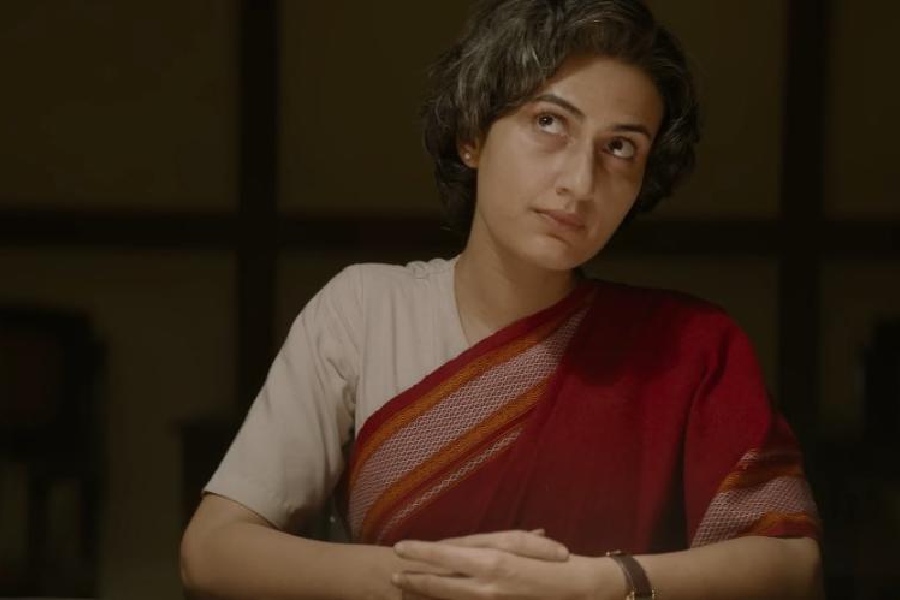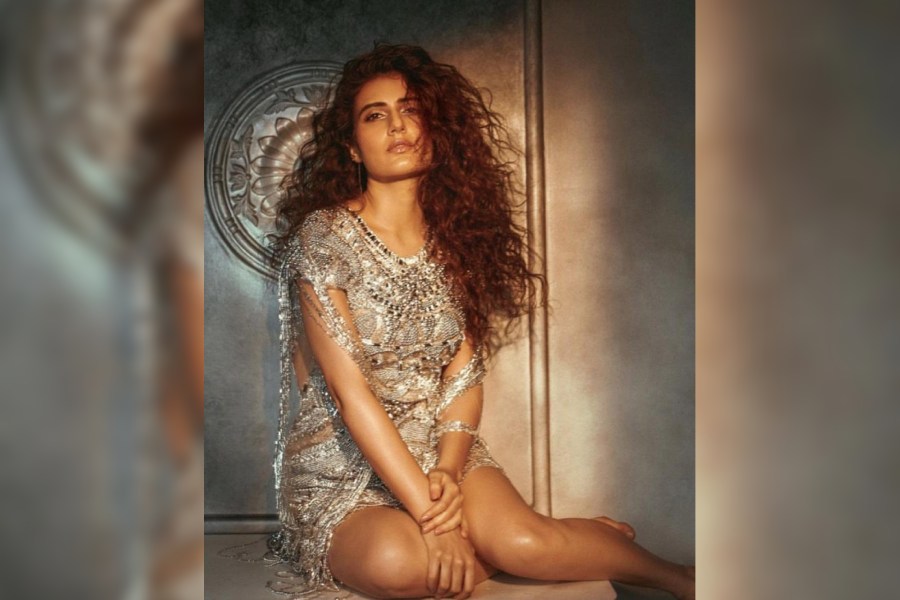Fatima Sana Shaikh stars in Dhak Dhak, that released earlier this month. In this inspiring story of four women biking their way to freedom, the Dangal actress shares screen space with Ratna Pathak Shah, Dia Mirza and Sanjana Sanghi. A t2 chat with Fatima.
What’s the reception to Dhak Dhak been like?
I met a few young girls who really connected with my character. Some of them went through some form of trolling and told me how difficult it had been for them. Or that they have known somebody who has gone through something as devastating as Sky (her character) went through and they connected with it. The fact that this character helped them heal in some way has been special for me.
I am fortunate that I have got to be a part of a film which has done that to people. Dangal managed to do that and now Dhak Dhak. People have come up to me and said that this film has helped them conquer their fears or come to some realisation, helped them heal or did something positive to them.
As an actor, you realise the responsibility of what you do. And the impact it can cause. And it is good that I am making some change, even if it is 0000.1 per cent.
What spoke to you the most about the film?
I select a script only on the basis of whether I like and connect with it or not. I don’t ask what the consequences will be, or what people will think, to be honest. Does it move me? Am I enjoying it? Am I connecting with it? Does it make me smile or cry or angry? If I connect with the characters and with the film, then I feel like doing it. It’s not necessary that your choices will be liked by others.
What you do is a reflection of what you believe in. And it’s okay. You make mistakes and you realise this is actually what I feel. But as you grow older, you realise that you cannot be rigid with one opinion. That’s because you start to open your eyes and learn the other side of the story too. And then you have to make a decision. I am realising I just want to do things that excite me. And I am glad that those choices have been inspiring. There have been good films that have moved people in some way or the other.
You have done films that have pushed you physically. There are some roles which have taken a lot out of you emotionally. Did Dhak Dhak test you the most on both counts?
Riding a bike for me was the most fun part. I enjoyed it a lot. I am used to riding bikes, and in this film, I got to ride a bike in the mountains. Having wheels under your feet is a very liberating feeling. I really enjoy skating too because it makes me feel free. There is freedom to manoeuvre things if you have control and if you know how to control your wheels. That’s a beautiful feeling.
I am extremely sensitive as a person. Being on this set brought a lot of happiness to me. It was a challenging shoot. We finished the whole film in 42 days, everything was done outdoors. It was very cold. We were constantly moving. We were being challenged by nature, the climate, the heat of Delhi, the cold of Manali, Ladakh and Leh and the shift in altitude. It started taking a toll on my body. So much so that I had to tell my mind to just keep pushing.
Sky seems a lot like how you are in life. Except for the fact that she’s really hot-headed and you come across as zen most of the time. Did you relate a lot to her?
I am not hot-headed... now (laughs). The biggest relatability factor for me was the explorer bit and also how Sky is so passionate about her work. But her core is very different from mine. She’s very hard and harsh. I have never been that person. I want to be nice to everybody. I want people to think of me in a very nice way and I will go out of my way to do that. Sky is very disconnected and she doesn’t care what people think of her. I am, by and large, a very positive person.
After Thank You For Coming, Dhak Dhak is the second film this month front-lined by women. We have heard about how films headed by women are not commercially viable. Have things changed or is this a one-off?
Women-oriented films were made even back then. Mother India was made decades ago. Granted that there was a shift in the ’80s and ’90s, but then again things changed. Today, if you want to make a film with Deepika (Padukone) or Kangana (Ranaut), it will be made... they will get in the money. Gangubai (Kathiawadi) has been made just resting on Alia’s (Bhatt) shoulders. When it was announced, Jee Le Zaraa (with Priyanka Chopra Jonas, Katrina Kaif and Alia) generated a lot of excitement. If I had the money, I would put it on this film.
But the business is complicated. When there is a new director, fairly new actors and a new producer, it’s difficult to market and get a mid-sized budget film out there when you don’t have a big name attached to it. And it doesn’t necessarily have to be a female-oriented film... it could even be a love story. In fact, love stories are even more difficult to get out there now, especially those which have two newcomers and a new director.
After Covid-19, a lot of things changed. There are films and shows with women headlining them. Kareena (Kapoor Khan) is now on OTT. Tabu has done so many films. But, of course, if you compare films featuring men and those with women, the number of the latter will be less. Because the conversation of equal rights has come in too late. The more the conversation is in society, the more there will be a change in society.
When we enjoyed item songs, how many of us knew that they were regressive? Until the conversation happened, we didn’t know. As society changes, content will also change.
Has working on the web, which is free of the limitations of cinema, been liberating?
It’s nice because there is one more avenue, one more opportunity. As rapidly technology is changing, even our style of consumption, our style of making films, our storytelling, our attention span, everything is changing. The shift is happening so quickly that sometimes it becomes very difficult for creators to adapt. Because by the time you adapt and think you have understood what is happening in the business, it changes. We don’t know what actually pulls the strings of the hearts of the people. So in the end, if the audience connects, then it could be OTT or TV or big screen.
How important has it been for you to be a part of a film like Sam Bahadur, that chronicles Field Marshal Sam Manekshaw’s life and career, and get to play the enigmatic Indira Gandhi in it?
I was very nervous because I wasn’t sure if I wanted to play the part. I was offered the part of Indira in another film too and I was not sure then because you need the right director and the right sensibilities to tap into the right emotions.
Sam Bahadur is not about Indira. We are celebrating Sam Manekshaw. There are people who come into his life and there are incidents when he adds value to their lives. I told Meghna (Gulzar, the film’s director) that I was nervous and that I didn’t think I was right for this. She told me: ‘I am telling you, you are right. Trust me.’

As Indira Gandhi in 'Sam Bahadur', releasing in December
Meghna has a lot of clarity, she knows what she is doing. She is a genius. There are two people I absolutely adore. One is Meghna and the other is Anurag Basu (who has directed Fatima in Ludo and the upcoming Metro: In Dino). Anurag Basu is someone I would give my life for. He is like family. He is so rich in emotions and he is a brilliant, brilliant man. I just wish that he made more films. I keep torturing him with: ‘You have so many stories. Just make them or give somebody else to make them!’
The way Meghna directs her actors is very different. You have to surrender to her. Once you do that, it is liberating. When you see the outcome, then you know it is worth it. She should be an actor herself, she is so good!











